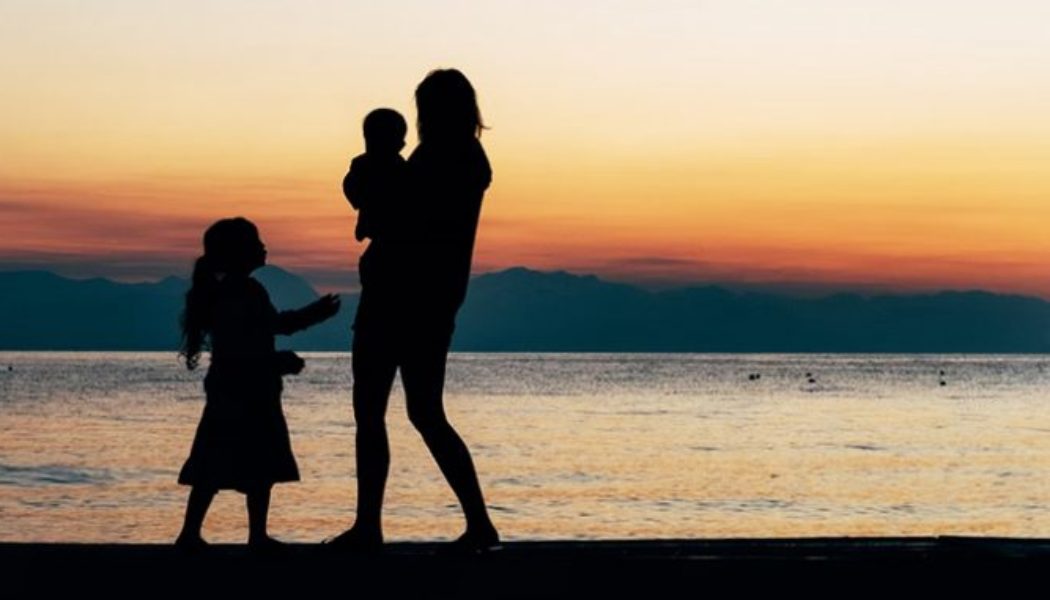
Jessica Bates, a widowed mother of five children aged ten to seventeen in Oregon whose husband died six years ago in a car accident unsuccessfully attempted “to adopt siblings from foster care,” both of whom are under the age of nine. Ms. Bates sought to adopt both children in light of her nondenominational Christian, biblical beliefs to care for orphans and to seek justice for the fatherless. Ms. Bates applied to adopt both siblings because in addition to the reality that some families are reluctant to adopt two children at once, she did not want either child to feel alone or isolated.
After she was well into the process, the Oregon Department of Human Services (ODHS) rejected Bates’ application to adopt the two siblings because it promulgated a rule that persons seeking to adopt must “accept” and “support” the sexual orientation and gender identity of any child the state could place in the applicant’s home. Further, the ODHS requires potential adoptive parents to undergo sexual orientation and gender identity training. These rules also denied Bates the ability to adopt even a newborn who clearly is unaware of as sexual orientation and gender due to her Biblical beliefs preventing her from respecting, accepting, and supporting the sexual orientation, gender identity, gender expression of children even though there does not appear to be any issue with regard to the two youngsters in this situation.
Disappointed at being denied to adopt the children due to her faith, Ms. Bates filed suit alleging, most notably, that the ODHS violated her First Amendment right to the free exercise of religion when they denied her application to adopt the children. She also charged that public officials violated her Fourteenth Amendment right to equal protection under the law by categorically excluding her from state child-welfare services due to her faith-based beliefs, invidiously discriminating against her due to her faith as they treated her worse than similarly situated persons who do not share her religious beliefs.
It is a core principle in the United States that all individuals are, and must be, free to live their lives freely regardless of their sexual identities, orientations, or religious beliefs. At the same time, though, Oregon regulations reasonably require prospective parents to do what they can to maintain the social and cultural heritages of children they adopt. Yet it remains to be seen how far can this go with regard to the sexual orientation, gender identity, gender expression of any children they adopt if it is not an issue at the time children are placed and which, to reiterate, does not appear to have been an issue in Ms. Bates’ situation.
Once children are in their homes with their birth or adoptive parents, the significance of Pierce v. Society of Sisters (Pierce) wherein the Supreme Court upheld the rights of non-public schools, whether faith-based or non-sectarian, to exist come into play. Acknowledging the authority of parents to have their children educated in the schools of their choice, the Justices pointed out that “[t]he child is not the mere creature of the state; those who nurture him and direct his destiny have the right, coupled with the high duty, to recognize and prepare him for additional obligations.”
What is happening to Ms. Bates stands Pierce, an almost one-hundred-year-old case from Oregon in which public officials essentially sought to put faith-based schools out of existence due to anti-Catholic animus by mandating attendance only at public schools with the exception of children who needed today what is identified as special education, on its ear. Ms. Bates situation is problematic because it denies her, and possibly other adoptive parents, of the right to raise their children as they deem appropriate in a manner consistent with their religious faiths.
In fact, it is difficult to understand why state officials would want to deny loving, caring homes to needy children because they disagree with the religious beliefs of prospective adoptive or foster parents who are otherwise qualified to care for these youngsters.
Amid significant social shifts relating human sexuality, especially within the past decade, a clear tension has emerged in the United States. On the one hand are the rights of parents as believers to direct the lives of the children in their care consistent with Pierce v. Society of Sisters while exercising their First Amendment right to the free exercise of religion. On the other hand, as evidenced in the present dispute from Oregon, state and public officials who seek to impose what can only be described as a litmus test to disqualify prospective adoptive parents of children who might otherwise not have permanent homes by denying individuals who are otherwise qualified opportunities to do so solely due to their religious beliefs.
Two years ago, in the conceptually related Fulton v. City of Philadelphia (Fulton), the Supreme Court, in an uncommon unanimous opinion, addressed child care services from an institutional perspective. The Justices ruled that city officials’ having denied Catholic Social Services (CSS) the opportunity to provide foster care services to needy children because it refrained from placing youngsters with same-sex couples violated its First Amendment right to the Free Exercise of religion. The Court struck down the city’s policy as unconstitutional because it was neither neutral nor generally applicable insofar it singled out a faith-based institution based on its sincerely held religious. The Justices concluded that insofar as city officials lacked a compelling governmental interest to deny CSS an accommodation that would have allowed it to continue serving children in a manner consistent with its religious beliefs, the policy violated the First Amendment.
If, in light of Fulton, municipal officials cannot discriminate against institutions based on their religious beliefs when acting to place children in foster care, it is inequitable and does not make sense to allow to allow authorities in Oregon to do so against an potentially adoptive parent who appears to be otherwise well-suited to care for the children but for her disagreement based on her faith.
Another point to consider in support of Ms. Bates is the Supreme Court’s judgment in West Virginia State Board of Education v. Barnette, a dispute over whether children could have been required to recite the Pledge of Allegiance and salute the American flag at the start of school days because it violated the beliefs of their parents, Jehovah’s Witnesses, who objected insofar as they viewed these practices as a form of idolatry in violation of their faith. Just as the Justices found that requiring children to salute and pledge to the flag exceeded constitutional limits on governmental power by invading their spheres of intellect and spirit that the First Amendment protects, an argument can be made that requiring Ms. Bates to affirm values contrary to her beliefs has the same impermissible impact.
Critics of religious freedom seemingly fail to understand that mutual tolerance and acceptance are supposed to be a two-way street. In other words, of course, adults are, and should, certainly be able to live their lives in the ways they wish, including with regard to their sexual orientations and gender identities So, too, then, should not people of faith, as loving and caring adoptive or natural parents, retain their constitutional and right to raise their children openly and freely in a manner consistent with their sincerely held religious beliefs?
Justice Alito’s dissent in Obergefell v. Hodges (Obergefell), wherein the Supreme Court enshrined same-sex marriage, voiced what we must hope is not a prescient warning. Alito feared that the changes in American society regarding human sexuality as they are emerging in federal litigation, statutes, and regulations as ushered in post-Obergefell may be “used to vilify Americans who are unwilling to assent to the new orthodoxy . . . I assume that those who cling to old beliefs will be able to whisper their thoughts in the recesses of their homes, but if they repeat those views in public, they will risk being labeled as bigots and treated as such by governments, employers, and schools.”
Let us hope and pray that Justice Alito’s fears never come to fruition so that Christians such as Jessica Bates and all people of faith retain their First Amendment, and God given, right to “Life, Liberty, and the pursuit of Happiness” in the form of practicing their religious beliefs freely and openly, including how they raise their children without fear of government interference. Moving forward, one must hope that people of good faith on both sides of this case, in particular, and in similar situations, can reach equitable compromises focused on the best interests of the children who need, but now risk being deprived of, permanent loving homes.
If the parties can reach a mutual understanding to afford people of faith such as Jessica Bates to live out their faiths in Gospel values by allowing her to help the least among us, then she and others will be able to comply with Jesus’ dictate to “let the little children come to me, and do not hinder them, for the kingdom of heaven belongs to such as these.”
If you value the news and views Catholic World Report provides, please consider donating to support our efforts. Your contribution will help us continue to make CWR available to all readers worldwide for free, without a subscription. Thank you for your generosity!
Click here for more information on donating to CWR. Click here to sign up for our newsletter.









